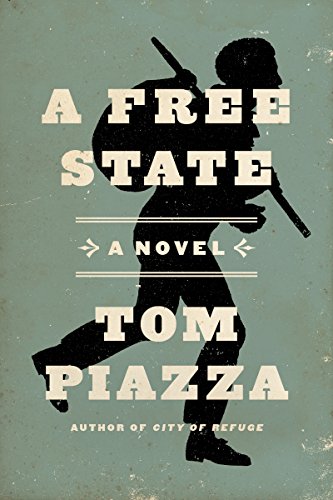A Free State
Tom Piazza often writes about jazz and blues, and their various ethnic and cultural origins and influences. In his latest novel, A Free State, Piazza reaches even farther back in American music traditions to reflect on the odd phenomenon of the minstrel show, which was all the rage in the North ahead of the Civil War. The straightforward story brings together Joseph—who later takes the name Henry Sims—an escaped slave who is also a talented musician and performer; James, the performer/manager of a Philadelphia-based minstrel troupe that needs a big headliner to remain competitive; and Tull Burton, a brutal slave hunter sent to recapture Joseph/Henry dead or alive.
Henry is the son of a slave who was the current favorite of the master, which explains Henry’s light skin and green eyes. He and James have parallel stories: they are both self-made men from distinctly underprivileged circumstances who developed their natural talents to make a better life. The primary difference is that it was not against the law for James to run away from his home and change his name. When James sees Henry’s mesmerizing street performance, he knows that the Virginia Harmonists, “purveyors of Ethiopian airs, plantation jigs, and every variety of Negro jollity,” need him to join their show, though that’s against the law, too. Henry is a born showman in a time and place that demands he remain hidden. To be free, to escape being hunted, Henry must make it to Canada, but it’s not where he wants to be. If he has to go where he doesn’t want to go, how is that freedom? Piazza leaves the threads of the story open-ended, with that question left unanswered.










